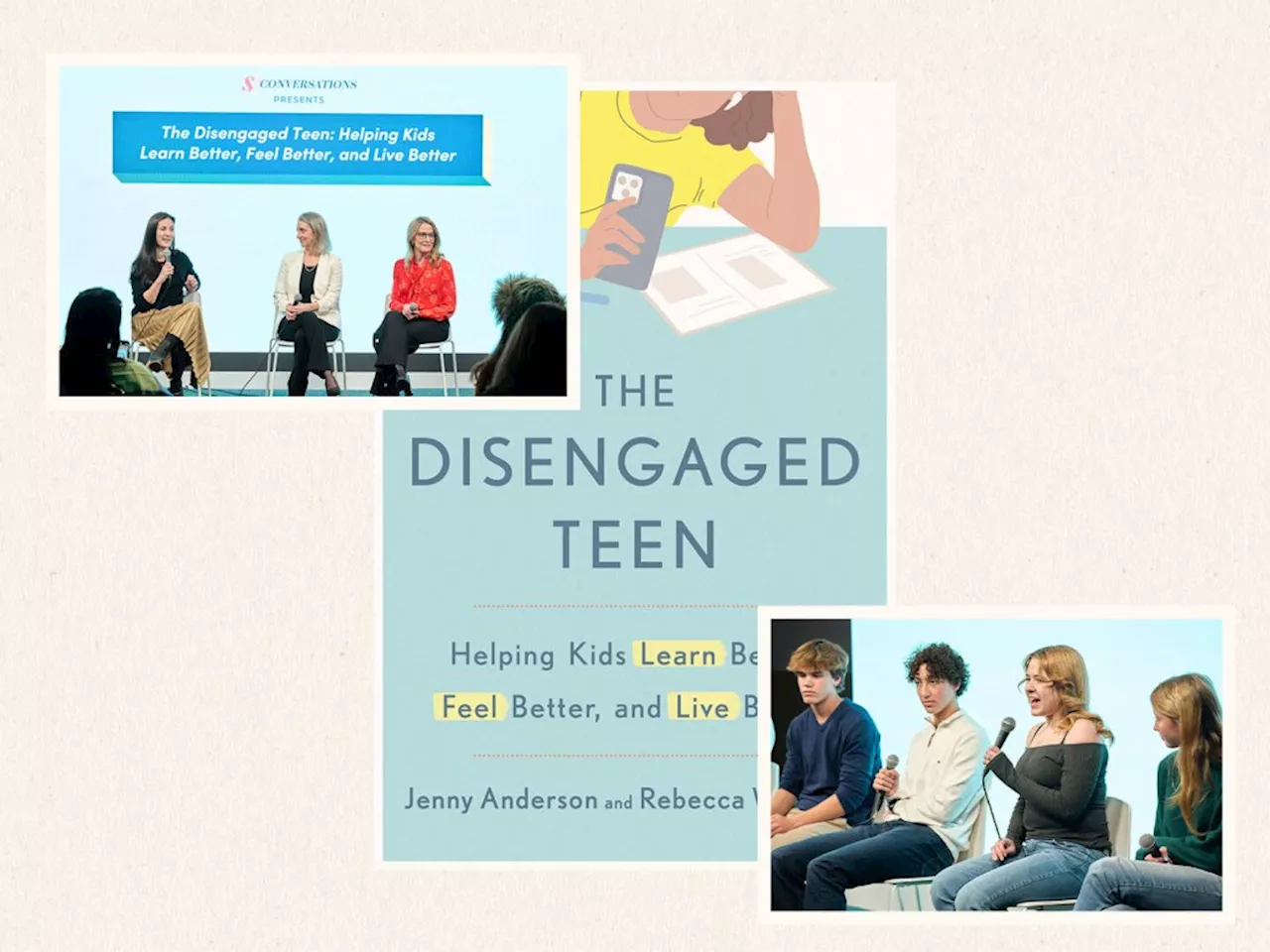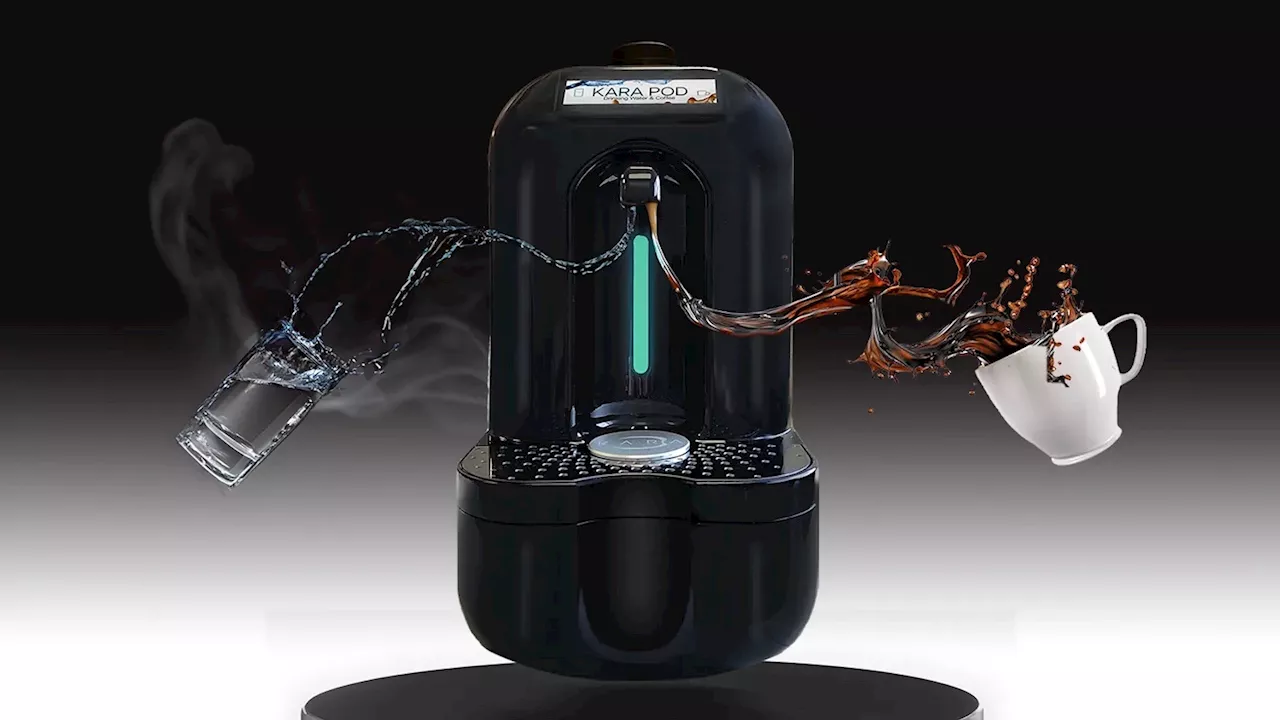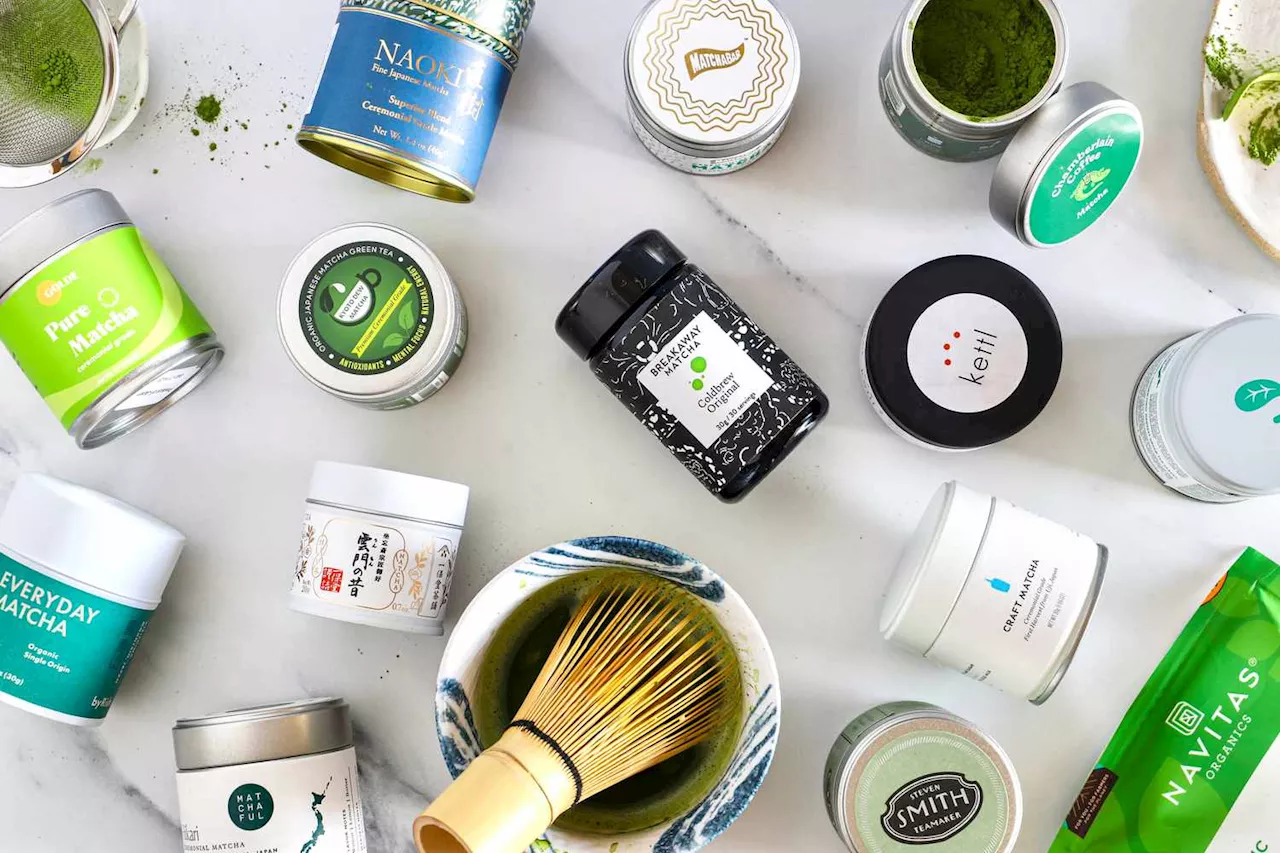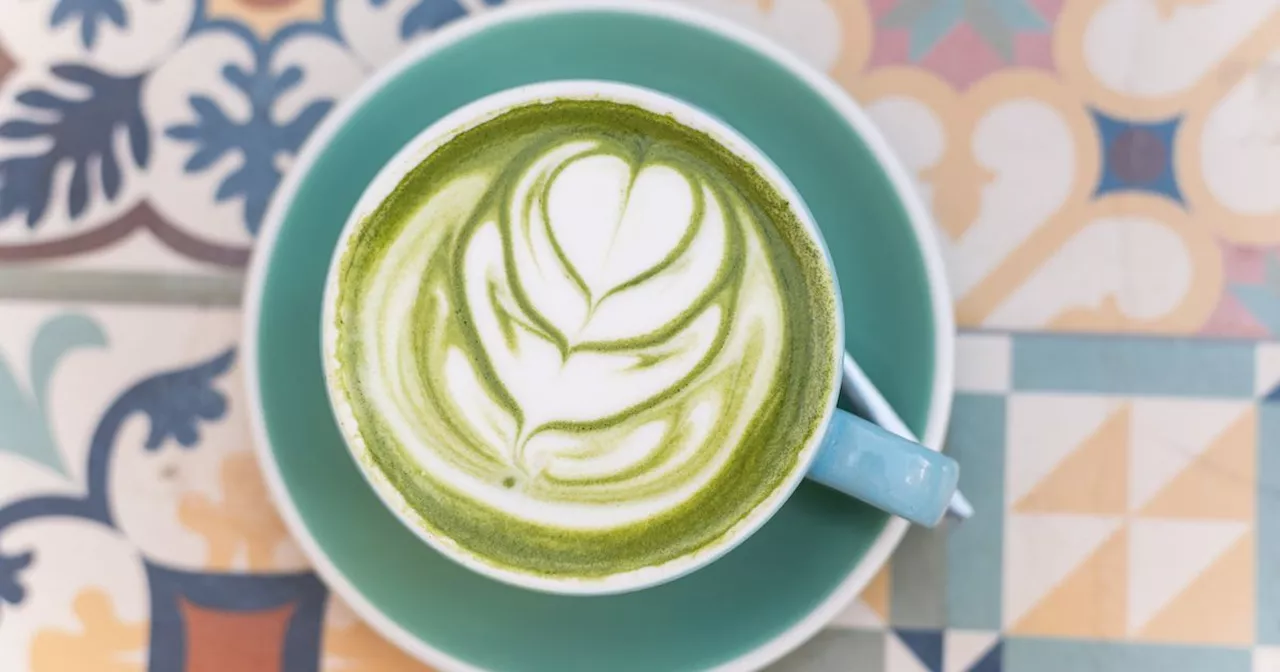Tired of coffee's jitters and crash? Many are discovering the calming energy boost of matcha. This article explores the benefits of switching to matcha, including its gentler caffeine, unique flavor, and potential to improve focus and sleep.
The beloved beverage, coffee, that eternal source of hope, clarity, and goodness can be fickle. After years of slamming back bottomless cups, you might now be struggling with jangling nerves, constant anxiety, or a roiling stomach. If you need to ease up a bit, it might be time to switch to matcha. We talked to folks who’ve made the switch to get all the tips and tricks you need for a new beverage adventure.
Matcha, derived from the Camellia sinensis plant, the source of all true tea, boasts a unique flavor profile. Registered dietitian said, “Matcha is a bit more earthy, and can even have sweet undertones, whereas coffee can be a bit more bitter and nutty.” Registered dietitian nutritionist While some may enjoy the break from the bitterness found in many a cup o’ joe, they may also notice a lingering sense of that “green” taste Palmer mentioned. Take it from one person who’s made the switch, experience designer. She realistically put it this way: “In general, if you don’t like the taste of freshly mowed grass, you might not ever be a convert.”OK, so you know it looks green and tastes green, and you’re still ready to give it a try? Beautiful. Onward to what it will do (and won’t do) to your precious nervous system. It’s a common misconception that matcha doesn’t contain caffeine. Palmer offered this roundup of the numbers: “Coffee typically has 100 to 120 mg of caffeine in a cup, but matcha has much less, only 38 to 89 mg.” So while it offers a boost, it’s been described as a kinder, gentler shake, instead of the full-body assault that coffee can launch on your delicate self. Even the caffeine that matcha does contain might affect you differently than coffee. Karp noted that “matcha’s caffeine is absorbed a bit more slowly, due to the amino acid L-theanine that’s naturally found in green tea leaves. By slowing down absorption, many find that matcha energizes them in a calmer way, compared to the jitters that can come from coffee.” , known as the Graves Disease Chef, said, “Coffee contributed to disease symptoms like anxiety, panic attacks, heart palpitations and high blood pressure.” Since her diagnosis, she drinks organic matcha tea most mornings. “While it does contain caffeine, matcha treats me differently, with a gentle pick-me-up that keeps me calm,” she said. While Ward pretty much quit coffee cold turkey, she said it might be best for those without pressing health concerns to start slowly. “Taste a few different brands to see which ones your palate gravitates toward, because not all matcha is equal.”, a clinical social worker and executive regional clinical director at Southeast Addiction Center, described it this way: “I decided to switch after noticing that coffee often left me feeling anxious, especially on high-stress days. What I love about matcha is that it provides a smoother, longer-lasting energy boost. Unlike coffee, which spikes energy quickly and then crashes, matcha gives me a calm focus throughout the day.”, founder of The Office Yoga Company, who said: “I fell in love with matcha last year, because it gives me an incredibly smooth boost of energy that lasts for hours, instead of the ‘jolt and crash’ I get from coffee.” understands the science behind both beverages, and he has chosen matcha. “The combination of caffeine and L-theanine helps to mellow out the peak and crash as caffeine is metabolized throughout the body. For me, matcha helped improve concentration and reduce insomnia.”said that she’s switched almost entirely: “Matcha gives me a more balanced energy, and while I still drink coffee occasionally for that quick boost in the morning, I avoid it in the afternoon because it affects my sleep. Plus, matcha doesn’t leave me drained once the effects wear off, like coffee sometimes does. I can see why Buddhist monks use it to meditate, and I often drink it when practicing mindfulness.”You might think the CEO of Klatch Coffee, a southern California coffee company, would turn up her nose at matcha, but that’s not the case for. “Our first love is coffee, but we have quite a few matcha drinkers in our organization, and we serve it hot and cold at our cafes,” she said. Perry also likes to switch up the drinks. “I choose matcha when the caffeine content in coffee may feel like too much, or I’ll have it in the afternoons, when I just need a slight caffeine pick-me-up. It’s always an easy and refreshing option to make.”said that, after discovering the joys of matcha, she still switches back to coffee sometimes. “I generally choose matcha over coffee when I feel I’m lacking in sleep, since I find that matcha won’t disrupt my ability to fall and stay asleep,” she said. “Matcha is also less acidic than coffee, so if I’m having symptoms like reflux or digestive issues, but need a caffeine boost, I’ll choose matcha.”, who saves coffee for times “when I need to feel alert for an upcoming hectic activity.” But after just turning 40 and experiencing sleep difficulties, she praised matcha, too.
Matcha Coffee Caffeine Energy Health Wellness Anxiety Sleep Focus L-Theanine
United States Latest News, United States Headlines
Similar News:You can also read news stories similar to this one that we have collected from other news sources.
 Morning coffee may protect the heart better than all-day coffee drinkingPeople who drink coffee in the morning have a lower risk of dying from cardiovascular disease and a lower overall mortality risk compared to all-day coffee drinkers, according to new research.
Morning coffee may protect the heart better than all-day coffee drinkingPeople who drink coffee in the morning have a lower risk of dying from cardiovascular disease and a lower overall mortality risk compared to all-day coffee drinkers, according to new research.
Read more »
 The Disengaged Teen: Helping Kids Learn Better, Feel Better, and Live BetterAuthors Jenny Anderson & Rebecca Winthrop Explain Teens’ Four Modes of Engagement — & How They’re ‘States, Not Traits’
The Disengaged Teen: Helping Kids Learn Better, Feel Better, and Live BetterAuthors Jenny Anderson & Rebecca Winthrop Explain Teens’ Four Modes of Engagement — & How They’re ‘States, Not Traits’
Read more »
 Kara Water's New Coffee Pod Brews Coffee Using Air-to-Water TechKara Water's latest innovation, the Kara Pod, is a coffee brewer that harnesses air-to-water technology to eliminate the need for water refills. The device extracts humidity from the air, converting it into drinking water for brewing. This eliminates frequent water refills, making it a convenient and sustainable solution for coffee lovers.
Kara Water's New Coffee Pod Brews Coffee Using Air-to-Water TechKara Water's latest innovation, the Kara Pod, is a coffee brewer that harnesses air-to-water technology to eliminate the need for water refills. The device extracts humidity from the air, converting it into drinking water for brewing. This eliminates frequent water refills, making it a convenient and sustainable solution for coffee lovers.
Read more »
 San Antonio Coffee Festival expands to Hemisfair's Civic ParkSAN ANTONIO - Coffee lovers rejoice: this year's San Antonio Coffee Festival eill be one of the biggest and best coffee events yet!
San Antonio Coffee Festival expands to Hemisfair's Civic ParkSAN ANTONIO - Coffee lovers rejoice: this year's San Antonio Coffee Festival eill be one of the biggest and best coffee events yet!
Read more »
 The Best Matcha Powders You Can Buy OnlineAshlee Redger, a recipe developer and writer, tested 14 matcha varieties to find the best online options for different tastes and budgets.
The Best Matcha Powders You Can Buy OnlineAshlee Redger, a recipe developer and writer, tested 14 matcha varieties to find the best online options for different tastes and budgets.
Read more »
 The Best Way to Froth MatchaThis article explores the best way to froth matcha for a delicious and refreshing summer beverage. It compares different mixing methods and recommends a specific technique for achieving the most stable and ample foam.
The Best Way to Froth MatchaThis article explores the best way to froth matcha for a delicious and refreshing summer beverage. It compares different mixing methods and recommends a specific technique for achieving the most stable and ample foam.
Read more »
